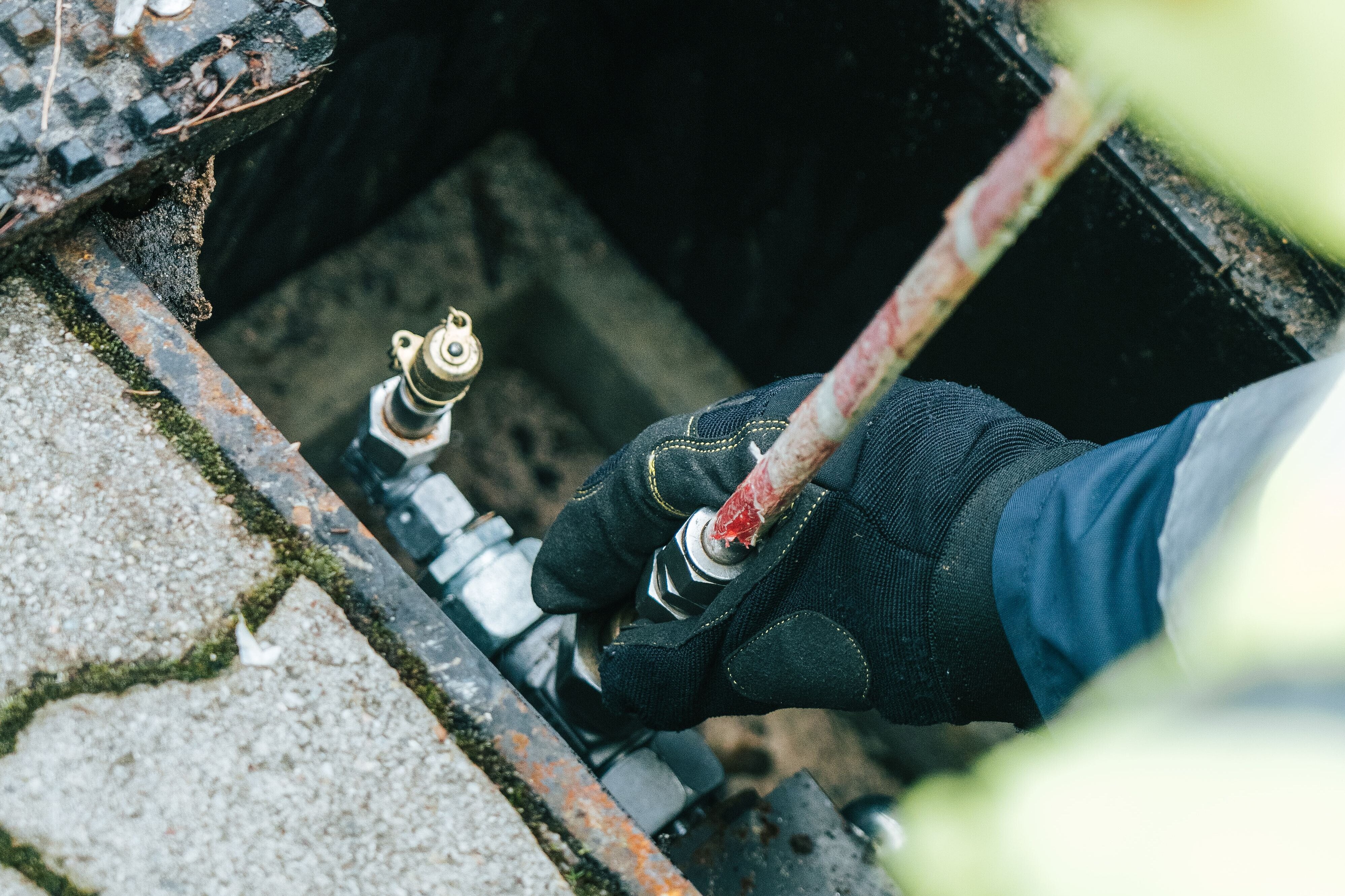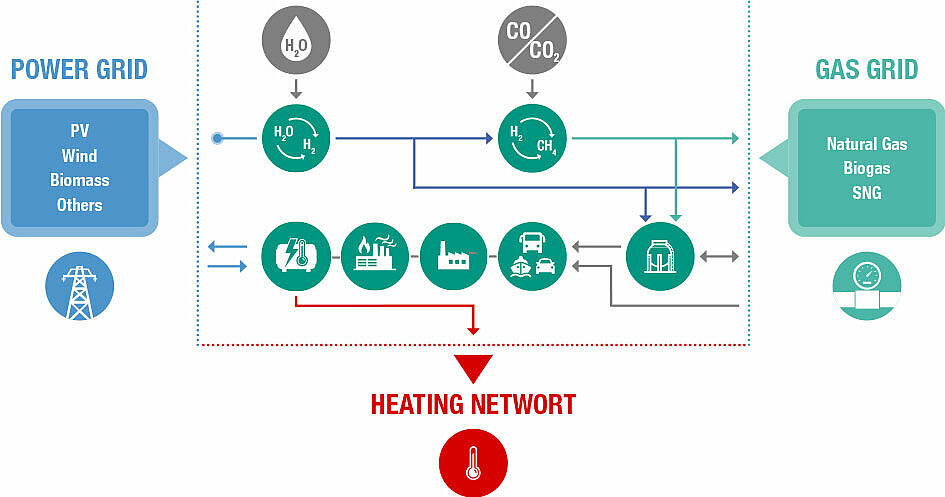

Gas infrastructure and gas quality
The energy transition is also asking new questions concerning the use of the gas infrastructure. The research center therefore investigates the effect of various renewable gases in the gas infrastructure.
The DVGW supports the gas and water industry in all technical and scientific areas. The main focus of the Association’s work is on safety and hygiene as well as environmental and consumer protection. The DVGW elaborates technical rules designed to promote the technical self-management of the German gas and water industry, thus ensuring the safe and secure supply of gas and water according to the highest international standards. The Association, which was founded in 1859, currently has approximately 14,000 members. The DVGW is free from economic and political influences.
www.dvgw.de/english-pages

The energy transition is also asking new questions concerning the use of the gas infrastructure. The research center therefore investigates the effect of various renewable gases in the gas infrastructure.
The energy transition throws up numerous issues on the continued use and transformation of the gas infrastructure in Germany and Europe. This particularly involves the strategic, technological and safety aspects of integrating RE gases. The DVGW Research Center at the Engler-Bunte-Institut plays a number of roles in a variety of research and development projects. While classic gas topics, such as gas quality, odorisation as well as the metrological monitoring of pipelines are explored, the role of modelling for gas infrastructure and interlinked energy systems is becoming increasingly important.

Gas quality is a key aspect of pipeline-based gas supply. Gas quality aspects play an important role for both the integrity of the gas infrastructure as well as for the safe use of gas applications. The DVGW Research Center looks at all of these issues as a whole. For example, the DVGW’s H2 in the network project investigates the monitoring of/compliance with gas quality requirements when transporting hydrogen across the existing natural gas network. This also considers trace substances in gas production as well as subsequent cleaning after withdrawal for compliance with customer requirements.

The DVGW Research Center has extensive experience in the field of odorisation. For example, we prepared and scientifically supported the introduction of sulphur-free odorisation in Germany. Besides olfactory studies on the compliant determination of the odour threshold and intensity of odorants, investigations are also focussed on physical and chemical investigations, such as on interactions with pipeline materials or on the chemical stability as well as the metrological aspects. Besides natural gases, the odorisation of biogas and hydrogen have also been explored in recent years. In addition, the Gas Test Laboratory tests odorants for certification and is actively involved in the drafting the regulations.
A key issue for the future of the gas supply is the integration of renewable gases, such as biogas, synthetic natural gas (SNG) and hydrogen. Depending on the origin and production method, different aspects need to be taken into account for the supply, storage as well as transport and distribution. In this context, the DVGW Research Institute investigates issues concerning the integration of renewable gases in the gas infrastructure along the entire gas process chain, from production through to the end customer. This considers large-scale import options for hydrogen and SNG, such as from the MENA region, as well as local supply paths, e.g. for the bundling of biogas plants.

The hydraulic modelling of gas networks is an important tool for changing over the gas supply from natural gas to renewable gases. The DVGW Research Center conducts modelling at the transport as well as the distribution network level. For example, the DVGW’s Roadmap Gas 2050 project involves the development of a simplified transport network model for Germany to enable fundamental investigations on future import and domestic transport flows. More detailed investigations, e.g. on the development of operating strategies or the supply of hydrogen, are carried out at the distribution level.

The classic, separate planning of the electricity, heat and gas energy systems will not be sufficient to meet the possibilities and requirements of the energy transition. Integrated energy management with gas provides a range of options for a cost-effective and efficient overall energy system. Due to the high level of complexity when planning and analysing integrated energy management options, the DVGW Research Center conducts dynamic simulations of energy systems that dynamically model energy networks (electricity, gas, heat), integrated energy management technologies, such as PtG or CHP as well as energy applications. The analyses enable a quantitative evaluation of costs, greenhouse gas emissions, resilience and security of supply and serve as a basis for planning integrated energy management options. For example, various configurations for a harbour microgrid were evaluated as part of the Federal Ministry of Economics and Technology’s MethGrid project. Different tools are used for the modelling and interlinked via co-simulations.